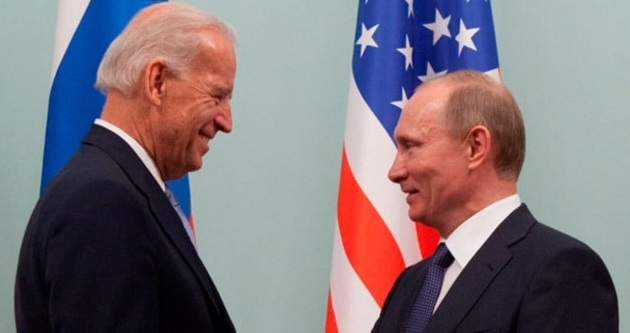US President Joe Biden and Russian President Vladimir Putin held their first conversation Tuesday in a phone call that underscored troubled relations. Media reports noted that the readouts from the two capitals emphasized different elements, while the two sides expressed a desire to do no harm but also no urgency to repair existing damage in bilateral ties, Global Times writes. There will be many obstacles in the process of any future reset between the US and Russia.
First of all, both countries have fundamentally different views about the international order. The US seeks to maintain its global hegemony, and Russia is an advocate of multipolarity. As the two powerful military powers in the world, each perceives its own security dilemma, which makes it difficult for both sides not to view each other as threats. Under such circumstances, it will be difficult to ease tensions between the two countries. The game between the two in the sphere of strategic security will not stop, nor will their overall competitive posture diminish. This can be seen in matters ranging from the Syrian crisis to the Iranian nuclear issue.
Second, Russia has been considered a major threat by the US. US diplomatic elites have treated Russia as the world's most threatening country to US national interests from the Cold War era to the present. Regarding geopolitics and ideology, from Washington's perspective, Russia is a geopolitical opponent that seeks to undermine the international status of the US, as well as its democratic beliefs and liberal values. Since 2016, US Democrats have criticized Russia for meddling in the US elections, and the "Russiagate" investigation was led by the Democratic Party. Thus, the new Democratic administration is not expected to suddenly improve relations with Russia.
Third, the improvement of US-Russia relations has been hampered by the European factor. For historical reasons, some Eastern European countries hold strong anti-Russia attitudes. The US has also often used Russia to sow dissension between the "new" and "old" Europe to maintain its influence in the continent.
In the past four years, the Trump administration has supported Brexit, imposed heavier tariffs, and pressured US allies to spend more on defense. These measures have seriously weakened relations between Europe and the US. With Biden in office, the US will focus on repairing relations with its European allies. Using the "Russia threat" as a strategy can bridge the differences between the US and Europe, but it will also pose obstacles to the improvement of US-Russia relations.
Over the last two decades, US-Russia relations have gone through ups and downs, and they have been "reset" several times. The Trump administration had tried to encourage the improvement of the bilateral relations. However, the reality is that bilateral relations did not get better, but both countries engaged in more intense competition in the spheres of military, diplomacy and security. US-Russia relations are difficult to reset mainly because of the inherent structural contradictions that cannot be reconciled in the short term.
Moreover, when dealing with foreign affairs, the US has always adhered to the Cold War mentality and the principle of a zero-sum game. It has followed the rule of confrontation and checks and balances only, making it more difficult to improve its relations with other countries.
Today, the systematic foundations for maintaining international security and stability between the US and Russia are in a precarious situation. The ABM Treaty and the INF Treaty, two of the three major arms control treaties signed by the two countries to maintain the stability of the international arms control and disarmament systems, ?? have already expired; the two countries have "agreed in principle" to extend the START nuclear treaty by five years following the phone call between Biden and Putin. Following the US withdrawal from the Open Skies Treaty in November 2020, Russia said in mid January that it will also withdraw from this treaty. The vicious competition between Washington and Moscow is seriously affecting global strategic stability.
The stability of US-Russia relations has great significance for world peace and development. Only by upholding the principle of mutual respect and win-win cooperation can countries achieve peaceful coexistence with others.






